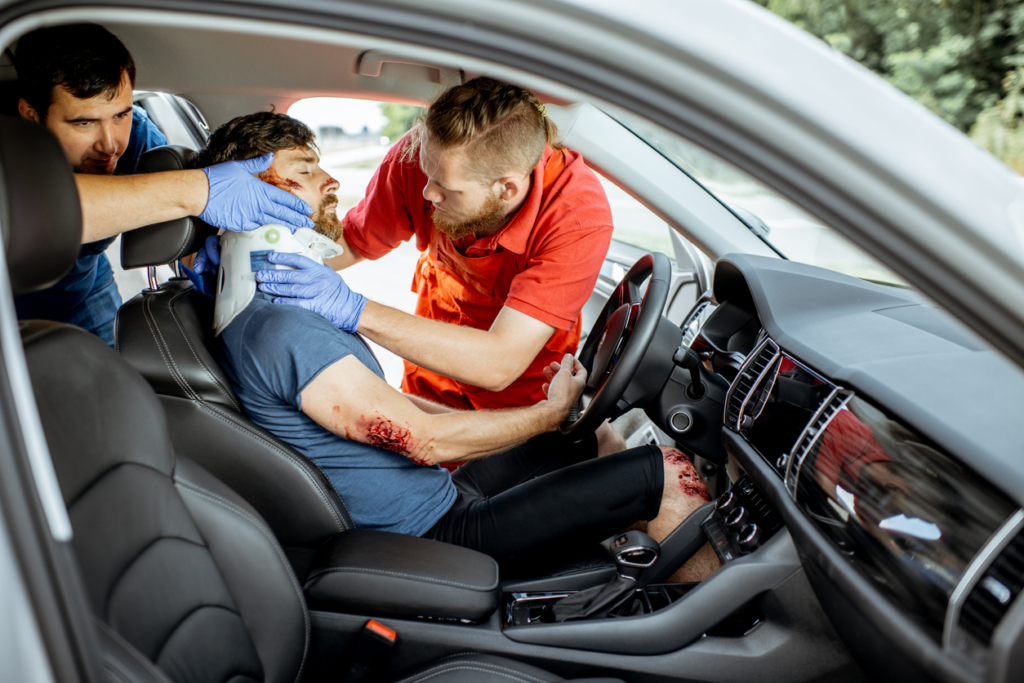 An incapacitating injury is typically a non-fatal injury that prevents the victim from functioning normally. However, some incapacitating injuries can become fatal over time. It may also be called a catastrophic or serious injury. It can take weeks, months, or years to recover from an incapacitating injury, and many people are permanently disabled as a result of these injuries.
An incapacitating injury is typically a non-fatal injury that prevents the victim from functioning normally. However, some incapacitating injuries can become fatal over time. It may also be called a catastrophic or serious injury. It can take weeks, months, or years to recover from an incapacitating injury, and many people are permanently disabled as a result of these injuries.
How Is An Incapacitating Injury Defined?
Most states, including South Carolina, define an incapacitating injury as a non-fatal injury that prevents a person from walking, caring for themselves or others, or otherwise normally functioning after an accident. These injuries can cause ongoing disability and pain for the victims. They may be unable to work, care for themselves, and contribute to their families. This can result in significant physical, emotional, and financial stress.
These severe injuries can result in serious losses for which the victim can obtain compensation from the at-fault party.
Types of Incapacitating Injuries in South Carolina
Some of the serious injuries that prevent continuation of normal activities include:
- Broken or distorted limbs
- Internal injuries
- Crushed chest
- Abdominal injuries
- Traumatic brain injuries (TBI)
- Head and neck injuries
- Amputations
- Back and spinal cord injuries
- Severe lacerations
- Partial or complete paralysis
- Chronic pain
- Nerve damage
- Severe road rash
- Burns
- Serious scarring
An incapacitating injury is any catastrophic injury that causes someone to be incapable of accomplishing day-to-day tasks like they did prior to the injury.
What Should I Do If I Get an Incapacitating Injury?

The next step you should take is to get legal advice from a personal injury law firm. Your personal injury attorney can help you file an accident claim and navigate the legal process. South Carolina’s legal process can be complex. There are important deadlines that you must comply with, or you may forever forfeit your right to compensation. Don’t let that happen. Work with an experienced personal injury lawyer who can ensure you get the money you need.
Common Causes of Incapacitating Injuries
Incapacitating injuries can be caused by a number of situations. However, some of the most common causes we have seen include:
- Automobile crashes
- Car accidents
- Truck accidents
- Pedestrian accidents
- Motorcycle accidents
- Medical malpractice
- Construction accidents
- Workplace accidents
- Nursing home abuse and neglect
- Premises liability incidents
- Slips and falls
- Defective or dangerous products
It’s important that you work with an attorney who has experience with cases like yours. They will need to know the specific laws that apply to your case and understand how to use them to support you.
What Is a Non-Incapacitating Injury?
A non-incapacitating injury is not as severe as an incapacitating injury. There is an evident injury, but it does not incapacitate the victim. Non-incapacitating injuries can cause pain; however, they generally do not cause disability or ongoing severe distress.
It’s still important for a person who receives a non-incapacitating injury to get medical treatment right away. However, they may be able to go to an urgent care or primary care physician instead of the emergency room (ER) or trauma center.
Some examples of non-incapacitating injuries include:
- Minor bruises
- Scrapes or abrasions
- Small lacerations or cuts
- Minor head injuries, such as a small bump or lump
- Mild concussion
- Minor neck injuries, such as mild whiplash
- Muscle strains and sprains
- Joint dislocations
- Small scars
- Mild burns that only affect the surface of the skin
Any injury to the body that does not result in an impairment may be categorized as non-incapacitating.
Getting Damages for Incapacitating Injuries

- Past and future medical bills
- Lost wages
- Loss of earning capacity
- Physical pain and suffering
- Emotional distress
- Mental anguish
- Disability
- Disfigurement and scarring
- Loss of consortium
In most cases, you can get 100% of your damages covered through a personal injury insurance claim.
Contact a Personal Injury Lawyer If You Suffered an Incapacitating Injury
Incapacitating injuries are devastating. They cause immediate pain and suffering as well as ongoing losses that can last weeks, months, or even years. Some incapacitating injuries have lifelong effects that can change your life as well as that of your family.
If you suffered an incapacitating injury in the Greenville or Fountain Inn, SC area, contact personal injury attorney Venue Poe at (864) 301-8670 for a case consultation. She will compassionately listen to your story and help you get the money you need to move forward.
